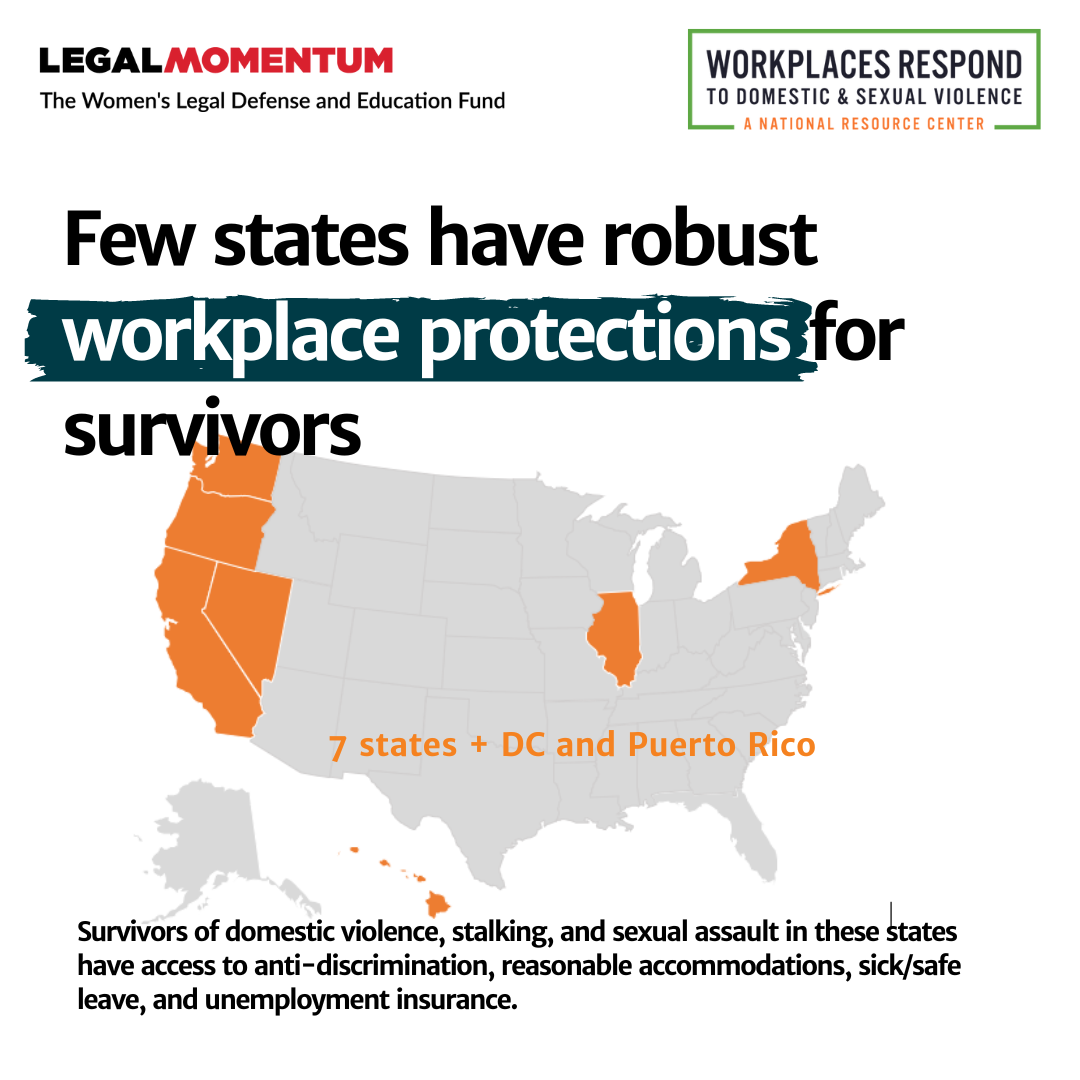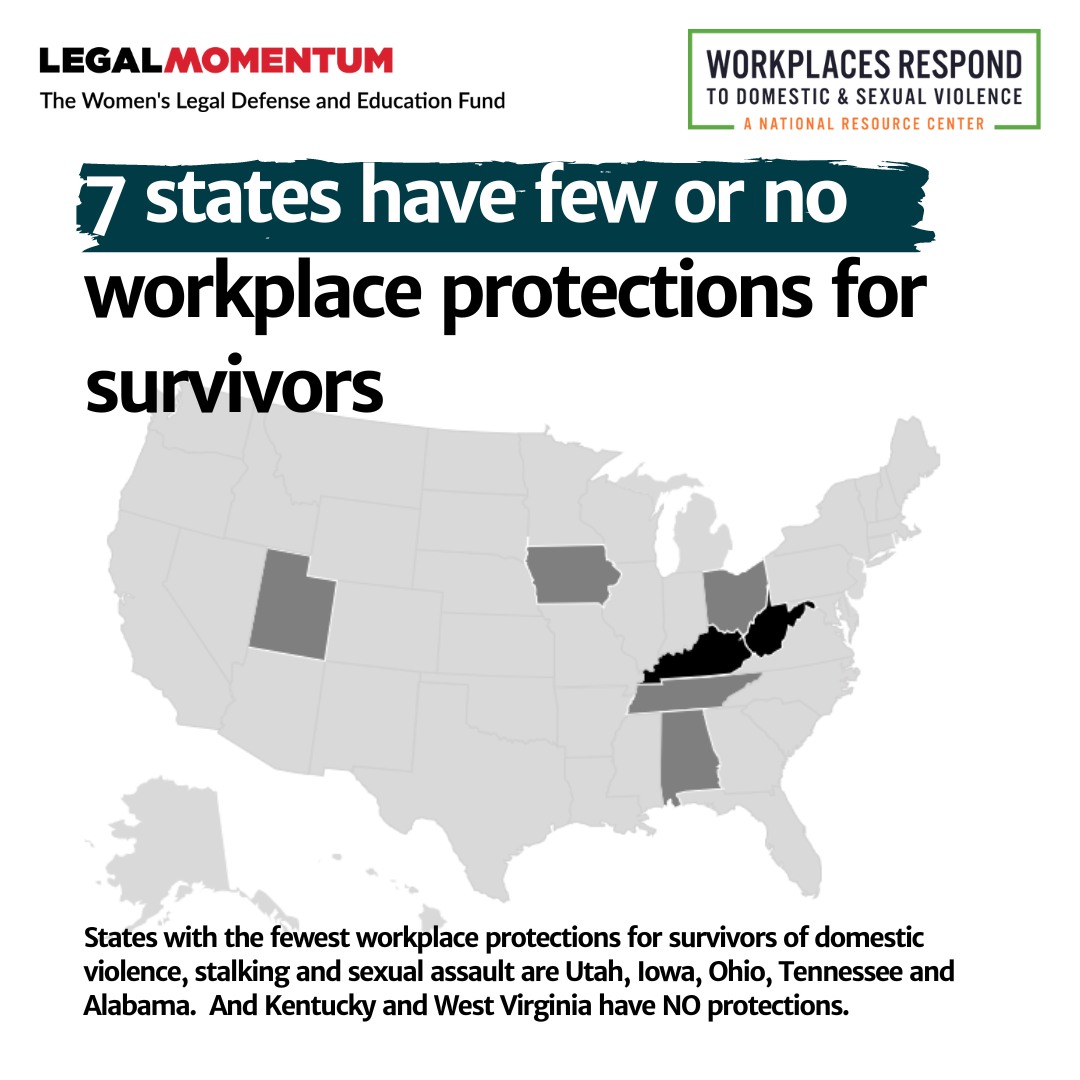[ad_1]

Financial independence is critical for people experiencing domestic violence, sexual assault, or stalking. It can be especially challenging, or even impossible, for them to escape abuse if they lose their jobs and face heightened economic insecurity. But a new guide released today by FUTURES WITHOUT VIOLENCE and Legal Momentum finds that few states have enacted the kind of employment laws that help people facing violence keep their jobs – and the laws that do exist are not always complied with or enforced. Changing that should be a high priority for state lawmakers when state legislative sessions begin early next year.
Our new State Guide on Employment Rights for Survivors of Domestic Violence, Sexual Assault and Stalking identifies workplace protections now on the books in four categories essential for survivors: anti-discrimination protections, reasonable accommodations in the workplace, leave/time off, and unemployment insurance. It looks at laws in all 50 states and several territories and finds that the only employment protection that is available in most states is unemployment insurance for survivors.
Only California, Hawaii, Illinois, Nevada, New York, Oregon, Washington, the District of Columbia and Puerto Rico have enacted robust legal protections, the guide finds. Kentucky and West Virginia have enacted no statewide protections at all, and Alabama, Iowa, Ohio, Tennessee, and Utah have only minimal workplace protections. 
The new Guide confirms that there is a lot of state-level work still to do, in particular to put anti-discrimination protections specifically for survivors of sexual and domestic violence in place, and to provide paid leave that survivors can use and that is not limited to legal proceedings.
With 83% of respondents to a 2018 survey reporting that their abusive partners disrupted their ability to work – and among those who experienced one or more disruptions, 70% were not able to have a job when they wanted or needed one, and 53% report losing a job because of the abuse – improving state laws should be a high priority. Our new guide is a call to action to lawmakers to enact laws that will help people facing violence keep their jobs. That’s why FUTURES and Legal Momentum have produced a Checklist of considerations to help federal, state, and local lawmakers develop or amend workplace protections to make them more effective and more accessible to survivors of domestic violence, sexual assault, and stalking.
The State Guide on Employment Rights for Survivors of Domestic Violence, Sexual Assault and Stalking is supported by the Office on Violence Against Women (OVW), U.S. Department of Justice. Its opinions, findings, conclusions, and recommendations are those of the authors and do not necessarily reflect the views of the Department of Justice, Office on Violence Against Women.
[ad_2]
Source link
